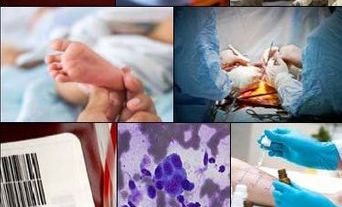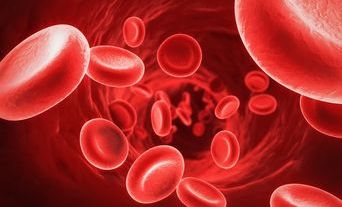Career journey
I was born in Alexandria, Egypt and moved back there following my school years in Dubai. After receiving my MBChB, I decided to specialise in clinical pathology, obtaining a master’s degree and then a medical doctorate at the Alexandria University teaching hospital.

I moved to the UK in 1999 and after obtaining my PhD in 2005 at the University of Aberdeen, undertook two years of post-doctoral research in the field of infection. I then returned to medical practice and was appointed as consultant in NHS Grampian in 2015 after completion of the FRCPath and medical microbiology training. In December 2021, I was also elected a Fellow of the Royal College of Physicians in Edinburgh.
I am delighted to have been awarded an Officer of the Most Excellent Order of the British Empire (OBE) in the Queen’s Birthday Honours list in June 2022.
Key achievements
Developing a solid research skill base
Moving with my family from Egypt to the UK was particularly challenging for my career prospects. I was very keen to learn as much as possible about research methodology, new techniques and advances in the field of molecular biology and whilst working on my PhD, I attended many courses, travelling around the world for conferences and workshops. This peak learning stage provided me with a solid foundation of knowledge and skills which helped shape my future career.
Through my academic years at the University of Aberdeen, I joined eminent research groups working on infection and microbiomes under the supervision of Professor Nigel Webster, Professor Helen Galley and Professor Emad El-Omar. My research allowed me to follow the course of management of many patients with sepsis in the intensive care unit where I was fascinated by the value added to their successful outcomes by the specialty of medical microbiology. I went on to learn more about the pathogenesis of sepsis, antimicrobials and antimicrobial resistance.
I am delighted to have been awarded an Officer of the Most Excellent Order of the British Empire (OBE) in the Queen’s Birthday Honours list in June 2022.

Building a new team
I was appointed as the Director of the Microbiology and Virology service soon after my first consultant post. Shortly afterwards, I was faced with an unprecedented staffing crisis, required to preserve a service that includes microbiology, virology, infection control, training, teaching and emergency on calls in a large university teaching hospital.
In the face of adversity, I learned the valuable skills of leadership and crisis management. I learned the skills of prioritisation, recruitment policy, negotiation, horizon scanning, resource management and team working with plentiful support from my colleagues. I was privileged to work under the leadership of Dr Bernie Croal (current RCPath Chair, Scotland Regional Council and President of the Association for Clinical Biochemistry and Laboratory Medicine [ACB]), who is an exceptional leader and role model. The service redesign policy was successful with better understanding of different skill sets and how to deploy professional areas of expertise. I certainly feel that the emphasis on the values of team working, professionalism and efficiency help our staff to thrive, be productive and feel appreciated, with a positive and proactive attitude towards successful service provision.
During the pandemic, I was tasked with a leading role as part of the local and national COVID-19 response.
Challenging COVID-19
I was appointed as the Virology Specialist Advisor to the Scottish Government (SG) and to the Chief Medical Officer (CMO), Professor Sir Gregor Smith in March 2018.
During the pandemic, I was tasked with a leading role as part of the local and national COVID-19 response. In particular I led on the complex diagnostics and infection control aspects of the COVID-19 response locally, including introduction and upscaling of testing, training and incident and outbreak management, as well as developing infection control guidance, clinical pathways and policies.
At a national level, I was involved in advising the SG and CMO as a subject matter expert on the clinical, diagnostic, testing, vaccination and quality aspects of the COVID-19 response including development of guidelines, clinical governance frameworks and technical development.
I led the development of the COVID-19 testing in the North Regional Hub responsible for turning around thousands of samples daily, seven days a week.
It was truly an honour to receive an OBE for my service to the NHS and the COVID-19 response in June 2022. Receiving such an acknowledgement by the UK Government and in particular by Her Majesty Queen Elizabeth II before her sad passing is an outstanding achievement that I will always treasure greatly.
The challenges that change brings
Laboratory medicine is a rapidly changing field with technology and the science behind it moving forward at a quick pace. For us to keep up to date and be part of the race, there needs to be a strategy embedded in teaching, training, research and service provision with the vision and ability to rapidly adapt to changes.
The diverse scope of laboratory medicine allows you to develop an area of specialist interest to an expert level, [which] provides a versatile array of knowledge that makes a career in laboratory medicine very exciting.
New technologies come with new skill sets and price tags that need to be matched with funding and staff shortages representing two key challenges in the current economic environment.
We need to investigate new models of working that can efficiently direct the available resources to the right place. The model of regional working based on the established service, skills, demands and geographical location has the potential to provide a cost-effective and efficient solution with several examples of successful models. However, this needs to be backed by the required logistics, IT, staffing, funding stream and infrastructure.
Similarly, in relation to staff shortages in laboratory medicine, it is important to explore different ways of working, without compromising standards and competencies. Training of different grades of staff to undertake particular tasks may help backfill gaps and allow other specialists to focus on areas requiring their expertise.
One of the most exciting aspects of pathology is the breadth of healthcare covered – you provide a service to patients in medicine, surgery, adults, children, acute, community and intensive care – basically everyone.
The College provides the Medical Training Initiative scheme, which is excellent for supporting skilled international medical trainees and integrating them into the system and the staffing establishment for those seeking to work in the UK.
Clinical research needs to be more established in the field of laboratory medicine with explicitly identified routes for funding, scholarship schemes, research facilities and having a connection with academia to help establish the much-needed link between healthcare and clinical research.

The excitement of a career in pathology
One of the most exciting aspects of pathology is the breadth of healthcare covered – you provide a service to patients in medicine, surgery, adults, children, acute, community and intensive care – basically everyone. This needs multi-agency links, where you work among a multidisciplinary team and you have the chance to see the full picture and discuss your views with others involved in the patient’s care. Through this, you can appreciate the added value of your specialty and professional skills in the patient’s journey right from the sample on the bench or under the microscope to the delivery of clinical care at the other end.
Furthermore, the diverse scope of laboratory medicine allows you to develop an area of specialist interest to an expert level. This type of broad interaction provides a versatile array of knowledge that makes a career in laboratory medicine very exciting.
Maintaining work–life balance
All through my career, I have had amazing support from my family. Despite a busy schedule, I make time for my family and my friends while ensuring I also have some time for myself. I try to be flexible, positive and motivated. One useful tip is to resolve conflicts quickly and objectively and then move on. I travel a lot and like to explore new places and meet new people.




